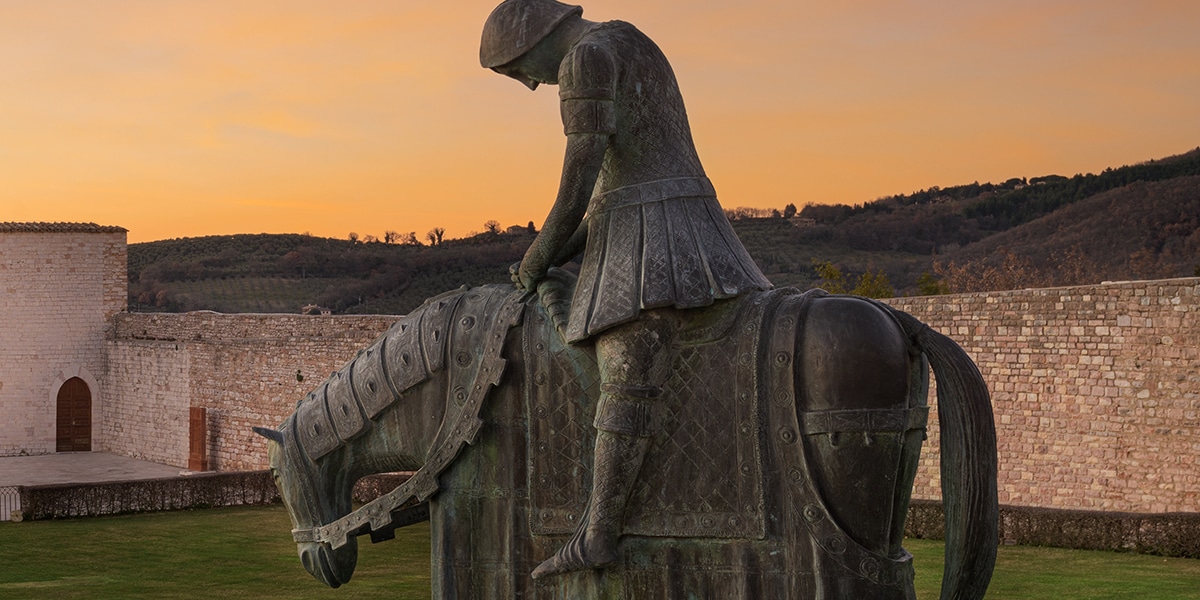There are 18 parables in the Gospel of Luke. One of the shortest ones contains one of the most powerful messages. It’s about the rich man who had a magnificent harvest. He faced a conundrum: “What shall I do with this fantastic harvest? My barns will never hold all of this since they still have some of last year’s harvest.” His solution makes sense and, in fact, helps him plan for what he anticipates will be big harvests for years to come.
“I’ll tear down my old barns and build new bigger ones so I have plenty of storage space for this harvest.” So far so good. But he forgets a most basic truth: he is not governor of his time or his lifespan. He envisions his new barns bursting with grain and exclaims to himself, “You have so many good things stored up for many years that you can rest, eat, drink, and be merry!”
God is surely not condemning this man’s hard work and dedication. God is not condemning wealth or riches that the man acquired. Sometimes we can get that impression from the Scriptures. But if you look at the great variety of saints whose lives we celebrate, many were poor and had little. At the same time, there have been kings and queens who reached a high degree of sanctity.
What a Fool Believes
Jesus’ teaching is about the blind attitude of the rich man in assuming that his needs were covered for many years to come. In a way, he was acting like God and presumed he knew the future. In fact, he predicted his future to be one in which he could eat, drink, and be merry.
Jesus calls him a “fool,” which is strange because Jesus said earlier in the Gospel, “Call no man a fool” (Mt 5:22). But, of course, in the parable, the man is really just that—a fool. One definition of a fool is a person who cannot or does not see reality for what it is. And no one is more a fool than one who takes himself out of the ordinary circumstances of life. There is absolutely no guarantee to anyone about the future.
The reason is simple: no one has control over the millions of circumstances that can and will affect his or her life. The most powerful man on earth can be laid low by a tiny blood clot that travels to his heart. The wealthiest man in the world can stumble, fall, and hit his head. An accident or an unforeseen disease can strike anyone at any time. The fool is one who sees himself as secure based on material things and therefore has a false sense of security.
Salvation in God
Jesus says that our security, no matter the circumstances, comes from our faith in God and in our desire to live our lives as best we can in accordance with the will of God. In doing that, our future takes care of itself.
What is wonderful about the Gospel is that we are reminded of the realities of life and death. Ultimately, our hope and peace of mind lie in our reliance on God. In the end it comes down to this little prayer, “Dear Lord, I am yours, and I am thankful that you are mine.”









6 thoughts on “The Rich Man and His Harvest: A Gospel Parable”
Interesting insight. I think this is also what St. James meant when he spoke about people & their plans & recommended that they first say “if GOD wills…”. That is why I usually preface my plans with “GOD willing”!
This is not specifically mentioned, but I was thinking that Our LORD was objecting to the rich man hoarding everything for himself when he could & should have set aside a portion of his grain to share with poor people. GOD blesses us with material prosperity not only for our own personal gain but so that we can bless others who are less fortunate. If more people voluntarily lived by this & were generous with their blessings (voluntarily & not by government redistribution), there would be fewer people suffering & fewer people clamoring for socialism, communism & oppressive governments.
You came to the same conclusion as I, better to trust God with continued blessing and to bless others by sharing the excess.
This is another one of those Gospel stories that doesn’t really make sense to me. I see nothing wrong about being provident and preparing for the future if one can. Why not? And then when you have provided for your future and others have not, they become jealous when you don’t share what you have with them? But then I can also see the warning about being a miser too, since the miser steals from himself, whereas the prodigal steals from his heirs.
It does seem foolish for us to believe that bigger barns and hoarding equity is the solution to the abundance of Gods Blessings while condemning those more capable of bringing Blessings to others. It seems once again sitting together breaking bread, enhancing unity rather then discord, non dualistic approaches to the Gospel will bring us closer to the teachings of Jesus.
This was an excellent read. Thank you friars!
Yes, we are foolish to think that we are going to leave in this world for many, many years even if we do not think of death. The Parable warns us to beware especially when we are full of worldly wealth and glory for it is going to go away. Thank you, Friar, for making us awake to this parable of Jesus